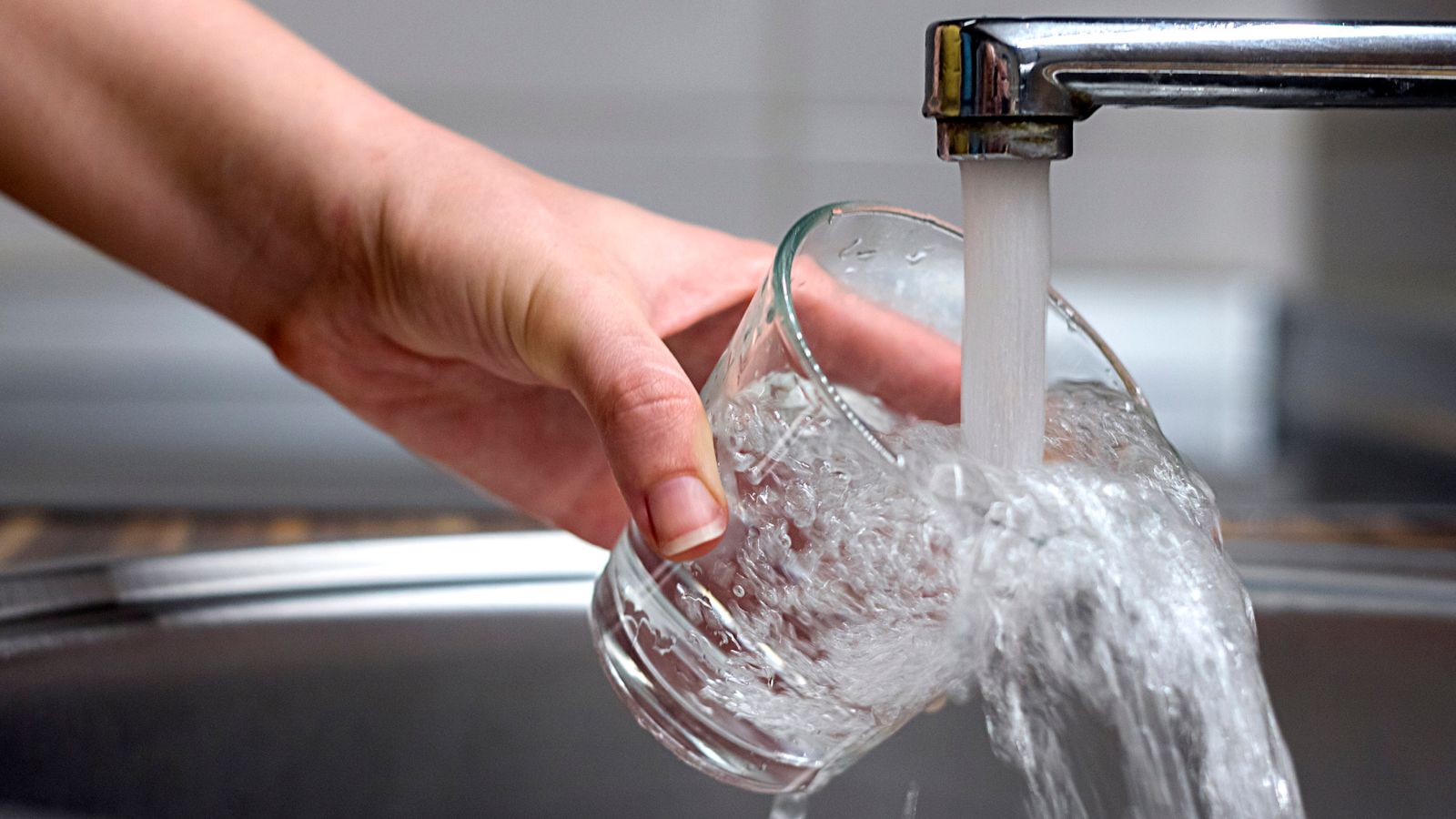Residents in a rural Yorkshire village have found tadpoles in their drinking water in a situation branded a “Dickensian scandal” by the local Conservative MP.
Former cabinet minister Sir Simon Clarke said nine homes in his Middlesbrough South and East Cleveland constituency are stuck without a connection to the mains water supply because of the prohibitive costs of even getting a quote for the works.
He said people in Aysdalegate – an outlying village about a mile outside the market town of Guisborough – have to boil their water before drinking it due to the risk of contamination such as E.coli.
Politics latest:
Government loses court bid over Boris Johnson’s COVID WhatsApps
However Northumbrian Water has advised it will cost £100 each just for a quote for connecting them to their safer mains supply – and that is not affordable for the “low income homes”.
Raising their plight in the Commons he said: “Over the last decade, Redcar and Cleveland council performed drinking water checks nine times and on all occasions supplies have been judged unsatisfactory owing to bacterial contamination including E.coli and enterococci.
“A regulation 18 notice which specifies that the water requires boiling before drinking has been in place permanently since December 2017 and indeed residents report to me finding tadpoles and other life in their drinking water.
Home Office to launch appeal in attempt to save Rwanda policy
Illegal Migration Bill suffers 20 defeats in House of Lords in fresh blow for Rishi Sunak
Chris Pincher: Parliamentary report imminent into claims of groping by ex-deputy chief whip
“This is a Dickensian scandal in 2023, but Northumbrian Water have advised it will cost what are low-income homes over £100 each simply to give them a quote for mains water connection.”
About 1% of the UK population do not have a mains water supply – which is water regulated by a utility company so that it is safe to drink.
Generally, this is in remote areas where the cost of installing a mains water pipe can be expensive, so residents rely on private supplies such as from wells or streams.
Local authorities are responsible for monitoring private water supplies, which are five times more likely to cause disease, according to the Water Treatment Association.
Rebecca Pow, the water minister, said she was “sorry” to hear of the situation in Aysdalegate but that “legislation does allow that those on a private supply can request a connection to the mains supply”.
She added: “It is right that the legislation allows the water company to charge for the cost of making a new connection because otherwise it would impact on all customers’ bills.
“Your local authority can obviously give advice and I would urge him to keep contacting them, but if there is anything extra that we can meet about to discuss usefully then I am happy to do that.”
‘Totally unacceptable’
However, Mr Clarke said her response was not acceptable as he called for a change in legislation.
He told Sky News: “For my constituents to have to live without safe drinking water in 2023 is totally unacceptable. For low income homes to then be asked to pay over £100 just to get a quote for how much it would cost for mains connection adds insult to injury.
“Defra assert that this is how the system works, but it clearly doesn’t as I see no route to resolution without either exceptional action by Northumbrian Water or a change in the legislation.”
Read more:
Thames Water investors ‘more concerned’ about company’s turnaround prospects, regulator says
Where does our water come from and what uses the most water in our homes?
Jim Shannon, the DUP MP for Strangford, also pressed the government on further support for people not connected to the water mains during the Commons debate.
He asked if there had been discussions on making grants available for people who need to come off their private supply to access pure water.
“I am of a generation that can well remember when water came from the wells, and it was pure and clean. Times have moved on, and we have realised that such water is not available to everyone,” he said.
Ms Pow was laughed at for claiming “a lot of people have wells” on their properties in response to his question.
Ms Pow replied: “I thank him for that. I too have a well, but actually it doesn’t supply our drinking water.
“I think a lot of people have wells on their properties, or locally on their roads or wherever. The issue he has raised is a matter for the Northern Ireland Administration, but here the Drinking Water Inspectorate has commissioned research into the impact of future private water supplies, as well as the whole regulatory model and legislative framework.”







